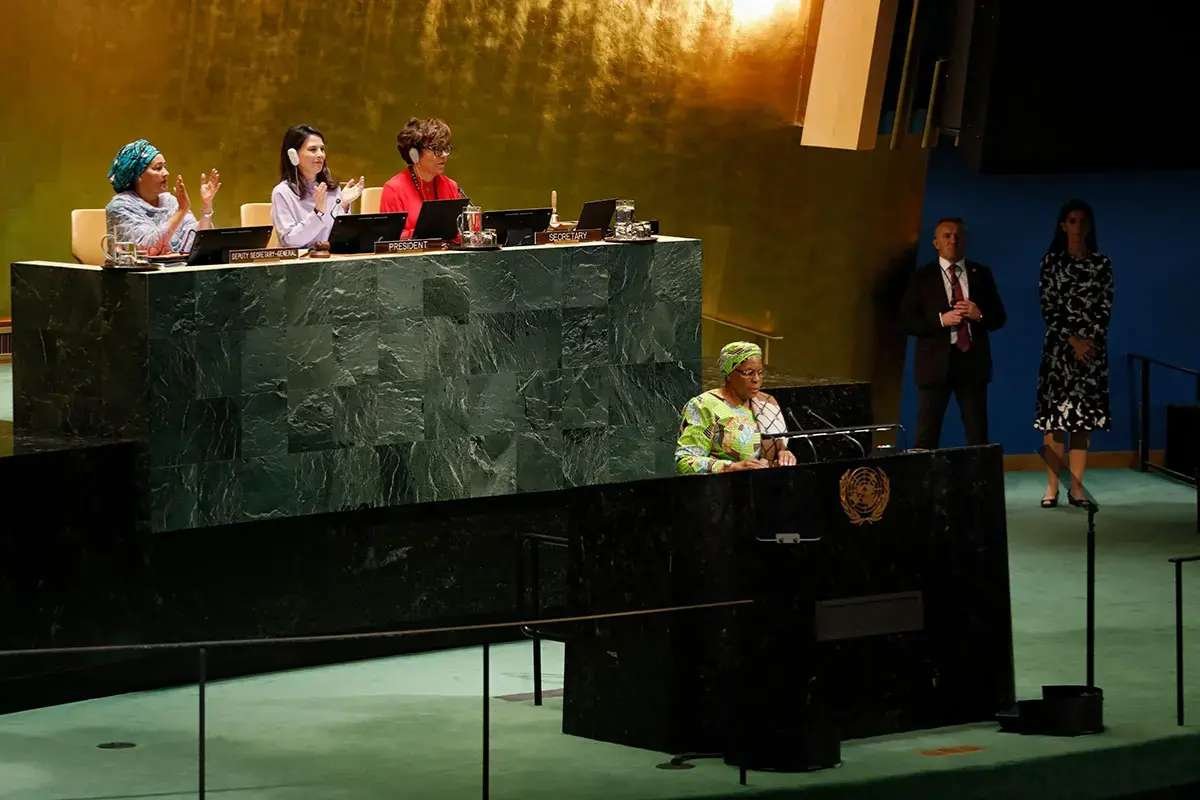Key Points:
- World leaders at the UN Assembly reaffirmed commitments to women’s empowerment and gender equality.
- The UN Women Empowerment Summit marked 30 years of the Beijing Declaration, highlighting progress and ongoing challenges.
- Global initiatives, including HeForShe and new government pledges, aim to accelerate parity and inclusion.
At the 80th session of the United Nations General Assembly, world leaders emphasised women’s empowerment and gender equality as central to global development and peace. The UN Women Empowerment Summit highlighted that advancing gender parity is not just a moral responsibility but a strategic imperative for addressing global challenges.
UN Women’s Executive Director Sima Bahous stressed that integrating gender considerations into policies is crucial for tackling pressing issues such as poverty, conflict, and climate change. At the UN Women Empowerment Summit, she urged governments to uphold their commitments, emphasising that empowering women and girls plays a pivotal role in fostering sustainable solutions worldwide.
During the high-level week, leaders from multiple nations reaffirmed the principles of the Beijing Declaration and Platform for Action, marking its 30th anniversary at UN Women Empowerment Summit. The discussions reflected both the progress achieved and the persistent obstacles in attaining gender equality across different regions.
UN Women Empowerment Summit: Progress Made and Challenges Ahead
Despite notable advances in women’s rights, significant gaps remain. Reports show that economic participation, political representation, and access to education continue to lag in many countries. Achieving full gender equality by 2030 will require substantial investments, with funding gaps posing a major challenge.
The gender digital divide also emerged as a key concern. Expanding women’s access to digital technologies and promoting digital literacy could significantly boost global economies and accelerate progress toward equality. However, without focused investment and policies, women risk being left behind in rapidly evolving technological landscapes.
International Initiatives Drive Change
In response to these challenges, international efforts are gaining momentum. The HeForShe Alliance, for example, is mobilising men and boys to address online misogyny and champion gender equality in digital spaces, fostering safer and more inclusive environments for women and girls.
Meanwhile, over 100 governments have made nearly 200 commitments to advance the goals of the Beijing Declaration. These initiatives range from strengthening legal frameworks to increasing women’s representation in leadership positions, signalling renewed global determination to achieve parity.
Leaders at the UN Women Empowerment Summit, emphasised that translating these commitments into tangible actions is essential. While progress has been made over the past decades, sustained efforts are required to overcome existing barriers and ensure that gender equality becomes a reality for women worldwide.
Visit more of our news! CIO Women Magazine









